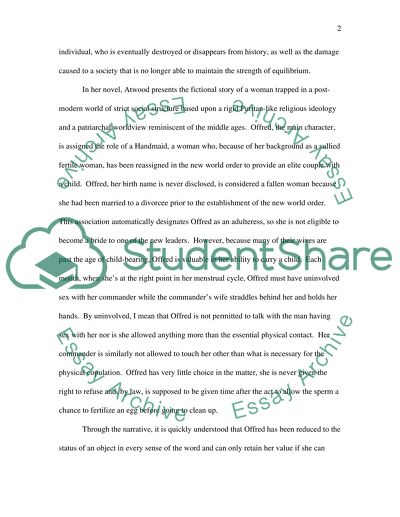Cite this document
(The role of women in The Handmaids Tale, by Margaret Atwood Book Report/Review Example | Topics and Well Written Essays - 2000 words, n.d.)
The role of women in The Handmaids Tale, by Margaret Atwood Book Report/Review Example | Topics and Well Written Essays - 2000 words. https://studentshare.org/sociology/1542736-english-oral-presentation-the-role-of-women-in-the-handmaids-tale-by-margaret-atwood
The role of women in The Handmaids Tale, by Margaret Atwood Book Report/Review Example | Topics and Well Written Essays - 2000 words. https://studentshare.org/sociology/1542736-english-oral-presentation-the-role-of-women-in-the-handmaids-tale-by-margaret-atwood
(The Role of Women in The Handmaids Tale, by Margaret Atwood Book Report/Review Example | Topics and Well Written Essays - 2000 Words)
The Role of Women in The Handmaids Tale, by Margaret Atwood Book Report/Review Example | Topics and Well Written Essays - 2000 Words. https://studentshare.org/sociology/1542736-english-oral-presentation-the-role-of-women-in-the-handmaids-tale-by-margaret-atwood.
The Role of Women in The Handmaids Tale, by Margaret Atwood Book Report/Review Example | Topics and Well Written Essays - 2000 Words. https://studentshare.org/sociology/1542736-english-oral-presentation-the-role-of-women-in-the-handmaids-tale-by-margaret-atwood.
“The Role of Women in The Handmaids Tale, by Margaret Atwood Book Report/Review Example | Topics and Well Written Essays - 2000 Words”. https://studentshare.org/sociology/1542736-english-oral-presentation-the-role-of-women-in-the-handmaids-tale-by-margaret-atwood.


